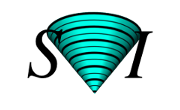Huygens Crosstalk & Autofluorescence Corrector
Learn & Support
Huygens Crosstalk & Autofluorescence Corrector
Learn more about the Huygens Crosstalk & Autofluorescence Corrector
FAQ
Crosstalk (or bleedthrough or crossover) is a serious problem when analysing multichannel microscopy images, because you record some signal as a certain dye when it really comes from a different one. With Huygens CrossTalk Corrector you can quickly estimate and correct crosstalk between multiple channels simultaneaously. Learn more.
In fluorescence microscopes, crosstalk (also frequently referred to as bleedthrough) can occur when acquiring a multi-channel image. Crosstalk means that signal that should be in multiple channels is captured in a single channel, there is thus crosstalk between channels. This can happen if the excitation spectra of different fluorophores overlap with the excitation light (laser or lamp). It can also happen when the excitation wavelengths of the fluorophores overlap and cannot or are not seperatet completely by collor filters in front of the detector.
There are three ways to set the crosstalk between channels. The simplest way is to press the ESTIMATE button and let the tool determine the crosstalk coefficients. If the estimation is not satisfactory the crosstalk coefficients can be adjusted manually. The crosstalk coefficients can be manually adjusted by moving the handles within the 2D histogram, or by switching to matrix view and changing the elements in the matrix
The Crosstalk Corrector matrix includes the correction factors for every combination of 2 channels individually, as long as the channels are in the same order you can use the template on other images (even if they have less channels). Under normal conditions the crosstalk will stay constant when opperating under the same experimental conditions (microscopic settings, staining, etc.). You can thus measure the crosstalk in a one or a few images and use the found crosstalk matrix for a complete batch (set) of images.
Yes, in the Crosstalk Corrector you have the option to show the matrix which in turn allows you to manually adjust the values. The matrix can also be saved and loaded in so providing your own Crosstalk/unmixing matrix is also possible.
Contact & Help Center
Did not find the answer you were looking for? Please feel free to contact us or go to our help center to find more information.
